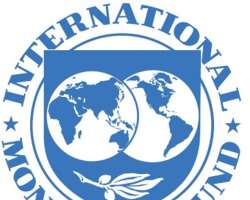Statement at the Conclusion of an IMF Mission to Namibia

WINDHOEK, Namibia, November 8, 2013/African Press Organization (APO)/ -- An International Monetary Fund (IMF) mission visited Windhoek during October 24-November 7 to conduct the 2013 Article IV Consultation discussions with Namibia. The mission's work focused on reviewing recent economic developments and prospects and policies to ensure continued macroeconomic stability and growth. The mission met with Prime Minister, Honorable Hage Geingob; Minister of Finance, Honorable Saara Kuugongelwa-Amadhila; Minister of Trade and Industry, Honorable Calle Schlettwein; Bank of Namibia Governor, Ipumbu Shiimi; Permanent Secretary Ministry of Finance, Ericah Shafudah; senior government officials; development partners; and representatives from the private sector and civil society.
At the end of the mission, Mr. Lamin Leigh, the IMF Mission Chief for Namibia, issued the following statement in Windhoek today, outlining the mission's preliminary conclusions:
“Real GDP grew by a healthy 5 percent in 2012. Preliminary data for the first half of 2013 suggest that growth has moderated somewhat. The slowdown reflects weak global demand for exports, which more than offset the solid growth in the non-mineral sector most notably in retail trade. At end-August 2013, inflation stood at 6 percent, broadly in line with inflation in South Africa.
“The fiscal outturn in the fiscal year 2012/13 was significantly better than targeted, with the budget almost balanced at the end of the fiscal year. The strong performance reflects both revenue over performance and some under-execution in capital spending.
“Looking ahead, the mission forecasts that output growth would further moderate to about 4 percent in 2013. Mineral exports will likely remain subdued in the second half of 2013 on account of weak external demand with growth slowing in Namibia's major trading partner economies. The impact of the drought will also likely weaken economic activity. These factors would be partly offset by strong domestic demand growth emanating from the recent income tax reform, along with the fiscal expansion targeted in the fiscal year 2013/14 budget. The non-mineral sector, in particular construction, is also expected to further rebound in the second half of 2013, mainly on account of the development of the Husab Uranium mine, which is expected to become the second largest uranium mine in the world in the coming years.
“The fiscal year 2013/14 budget laid the groundwork for an active reform agenda most notably in the area of reduced income taxation, and improved public financial management and tax administration. While the budget is fairly expansionary, total tax revenue collections to date have proven resilient and should help consolidate on the large gains made in the fiscal year 2012/13. With an uncertain external environment, the mission urges the authorities to begin to rebuild the policy buffers. This should be pursued through a “growth friendly” fiscal consolidation strategy, which would focus on reining in current spending such as current transfers and subsidies to state-owned enterprises (SOE), while preserving growth promoting capital and infrastructure spending, which some SOEs contribute to. The fiscal consolidation process also needs to be balanced with a combination of both expenditure cutting measures and domestic revenue mobilization efforts. Thus, the mission welcomes the government's commitment to a simplified income tax system to achieve higher compliance and lower cost of administration. The mission supports the authorities' ongoing work on broadening the tax base through rationalization of existing tax incentives in some sectors.
“Namibia's banking system is highly profitable and well-capitalized, with relatively low nonperforming loans and adequate buffers to smooth shocks. The 2011-2021 Namibia Financial Sector Strategy (NFSS) is sound and strikes an appropriate balance between financial inclusion and stability. The strategy outlines measures to reduce financing constraints for small- and medium-sized enterprises (SME) engaged in productive projects (including through the SME Bank that was licensed in December 2012), while stressing the need to safeguard the stability of the financial system. The Bank of Namibia's semi-annual Financial Stability Reports have also rightly focused on the challenges that could emanate from the high household indebtedness and recommended appropriate policy responses to minimize the associated risks. The mission welcomes the successful cooperation between NAMFISA—the regulator for non-bank financial institutions, the Bank of Namibia and the Ministry of Finance that aimed at strengthening and modernizing the regulations of non-bank financial institutions.
“The authorities' increasing emphasis on efficiency and innovation driven growth, underpinned by greater private sector development, to boost economy-wide productivity, is a step in the right direction. This approach would require increasing the quality of public spending including through ongoing reforms of public financial management, improving the efficiency and effectiveness of the tax system, reducing the cost of doing business, and diversifying the economy. The mission welcomes plans by the government to do a comprehensive review that aims to improve the investment climate, the ease to do business, support to SMEs and pursue deeper economic integration. Delivering good outcomes from the government's diversification policies would require supportive measures to liberalize the service sectors, reduce the domestic regulatory burden on firms and address the skill mismatch in the labor market.
“Finally, the mission would like to express its sincere gratitude to the Namibian authorities for the consistently high quality of the policy discussions and for their warm hospitality.”
